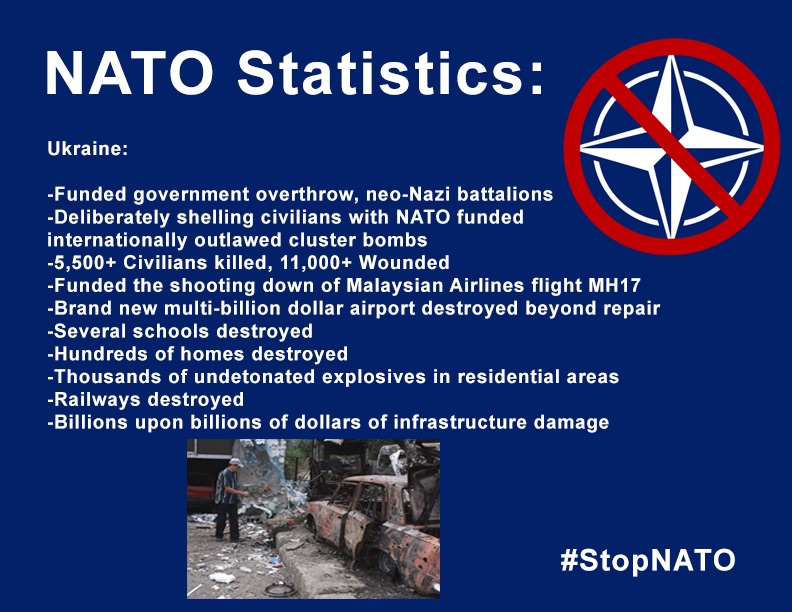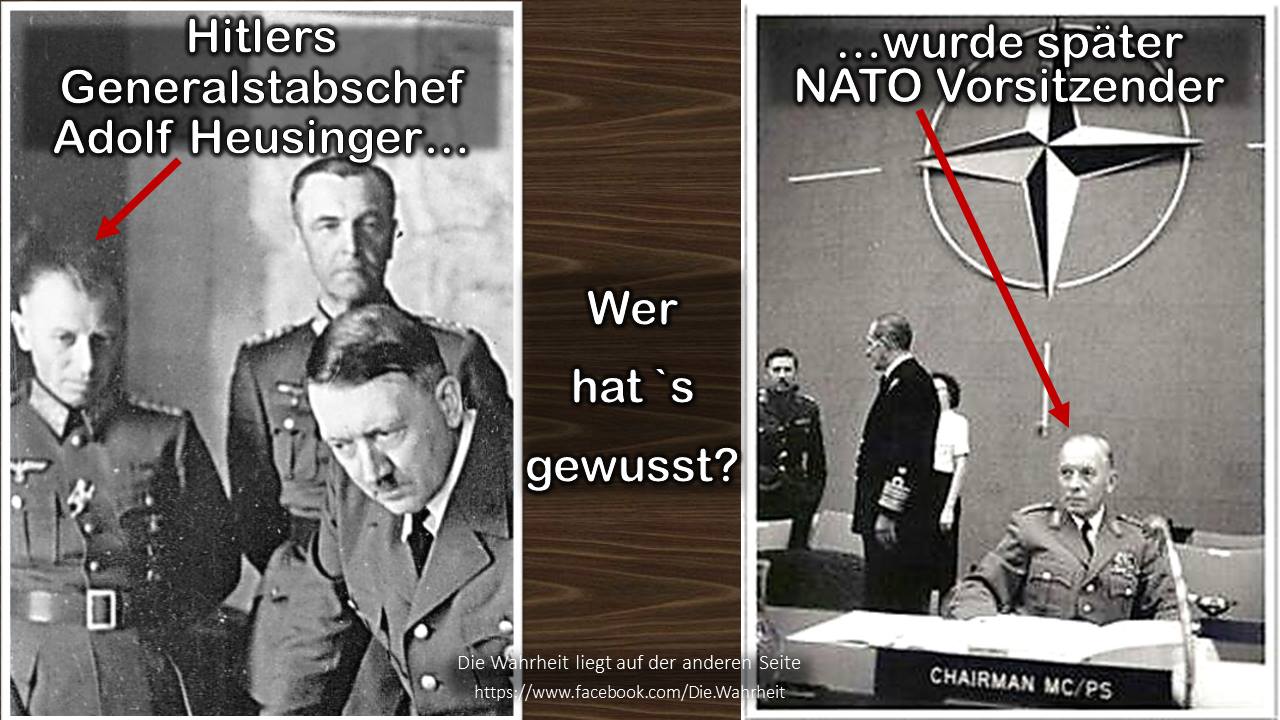
Views: 5069
When the Warsaw Pact ended, after the collapse of communism, some optimists might have expected Nato to be broken up too.
After all, the Labour Party in Britain had been opposed to Nato in the mid-1980s. But that was not to be. The US, which had always dominated Nato, quickly began to reinvent Nato and furthermore to expand it.
Following the end of the Warsaw Pact many central and east European governments wanted to join Nato.
This of course was music to the ears of the US military manufacturers. Indeed, the chair of the expand Nato committee, Bruce Jackson, was technical director of Lockheed Martin, the largest military manufacturer in the world. So, for the new Nato members because of the policy on “interoperability,” that is Nato personnel being able to use the same military equipment, it was out with the old Soviet military hardware and in with sales of, for example, Lockheed’s military aircraft costing millions of dollars.
This continues to this day in countries which can ill afford it with struggling economies. The latter includes Greece. Think of the situation in Greece today.
Expanding Nato up to the borders with Russia was a provocative policy. The dangers were pointed out but the military industrial complex and the “hawks” in the West took no notice.
To this day this helps President Vladimir Putin: more and more of the Russian people believe that “the West” is against them.
Decades later, we read: “British troops have arrived in Estonia as part of a major Nato mission in the Baltic states to deter Russian aggression.”
From the beginning, Nato has always held a nuclear armed policy. It continues to claim that nuclear weapons “preserve peace.” Manifestly nuclear weapons do not deter conflict.
Governments, including Britain’s, now analyse the main threats to security as cyber warfare and terrorism. Remember September 11 2001 when New York was attacked by terrorists in planes brandishing knives?
The US then had and still has 13 nuclear armed Trident submarines, of which several will be roaming the seas fully operational. Britain has four, with one constantly on alert at sea.
Were these any use in the madman’s attack on Westminster or in any terrorist attacks?
Trident is “integrated” into Nato. Even worse, Nato still has a policy of “first use of nuclear weapons.”
When the then minister of defence, Geoff Hoon, was asked in Parliament why Britain has a policy of “first use,” he replied: “Because of our obligations to Nato.”
Under the direction of the US administration with its policy of global domination, Nato has established a string of nuclear-armed bases across Europe in Belgium, Germany, Italy, the Netherlands and Turkey at Incirlik.
The latter is now causing deep problems as relations between President Recep Tayyip Erdogan and the US become more and more fractious.
There is now a real problem for Nato as Erdogan is a repressive dictator — how can Turkey remain in Nato?
Nato states are supposed to uphold principles of human rights and democracy, notably lacking in Turkey today.
The nuclear-armed bases come under Nato’s “nuclear sharing policy” — in effect a violation of the nuclear Non-Proliferation Treaty.
Nato continues to expand. The policy of not acting “out of area” was dropped long ago. “North Atlantic” simply means domination of policies by the US.
Nato claims in its “strategic concept” that “the promotion of Euro-Atlantic security is best assured through a wide network of partner relationships with countries and organisations around the globe.”
In 1994 Nato established the Partnerships for Peace across Europe, extending as far as Uzbekistan. Nato surrounds Russia from the west and east. These Partnerships for Peace (note the language again) now include 22 states, including “neutral” Ireland.
Then there is the Mediterranean Dialogue with arrangements with countries in the Middle East. Few people realise that Nato carries out military exercises with Israel. Nato has also established bilateral relations — named individual partnerships — with Afghanistan, Australia, Iraq, Japan, the Republic of Korea, Mongolia, New Zealand and Pakistan.
In this part of the globe, where Nato carried out a military exercise in 2014 with Japan named Ocean Shield, they are surrounding and menacing China as the enemy.
Then there was the statement by Nato that “co-operation between Nato and the United Nations continues to make a substantial contribution to security in operations round the world.
“The alliance aims to deepen political dialogue and practical co-operation with the UN, as set out in the Nato/UN declaration signed in 2008.”
This seems like Nato bidding to be the military arm of the UN. This hardly accords with the UN Charter. It was the Organisation for Security and Co-operation in Europe, which was set up under Chapter VIII of the UN Charter to prevent and resolve conflict by non-military means and to promote co-operation in humanitarian and other fields.
The 54 member states stretch from Iceland to Kyrgyzstan and include Russia. Alas, how many times do you read of their work in the press compared with the times you hear about Nato?
Nato is sold to us as a peace-making body. After all, the US is home to the finest PR companies in the world.
Do not be misled by Donald Trump’s condemnation of Nato. It is not the policies he is condemning. He himself wants more nuclear weapons in the world, though one wonders if he can comprehend the horror of what happened when the US dropped nuclear bombs.
And to her shame, Theresa May has also said she would press the nuclear button and so has shadow defence secretary Nia Griffith.
Trump just wants more money for war as we saw when he announced a $54 billion increase to the military budget — while thousands in the US live below the poverty line.
To summarise, Nato is pursuing yet more militarism and war:
– All Nato states are required to increase their military budgets to 2 per cent of GDP. That means stealing more money from social needs. Readers of the Morning Star know those all too well: the NHS, education, adult social services; the list is endless.
– Nato member states will have to spend 20 per cent of defence budgets on military equipment: warships, war planes, drones, bombs. By fuelling the arms race, Nato makes a mockery of moves for conflict resolution.
– Nato and its member states multiply interventions outside their territory and increase their presence through worldwide partnerships and “coalitions of the willing.”
– Nato extends its nuclear policies as a supreme “guarantee for the allies’ security,” notwithstanding that the majority of countries in the world are negotiating a treaty to ban nuclear weapons. In the meantime, nuclear weapons in Europe — under the guise of Nato — and elsewhere are being modernised at a cost of many tens of billions of dollars and pounds. Think of Trident at a cost of £205 billion.
The Nato summit will be held tomorrow in Brussels and activists will be holding a “counter-summit” beginning today with protesters organising workshops and a demonstration. CND activists will be there from Britain, but we also need people to raise the issues with their MPs, write letters to the press and raise awareness on social media. Let’s put pressure on the government to invest in social welfare, not Nato, not war.
Originally published on 2017-05-24
Source: Morning Star
Origins of images: Facebook, Twitter, Wikimedia, Wikipedia, Flickr, Google, Imageinjection & Pinterest.
Read our Disclaimer/Legal Statement!
Donate to Support Us
We would like to ask you to consider a small donation to help our team keep working. We accept no advertising and rely only on you, our readers, to keep us digging the truth on history, global politics and international relations.
[wpedon id=”4696″ align=”left”]
FOLLOW US ON OUR SOCIAL PLATFORMS











